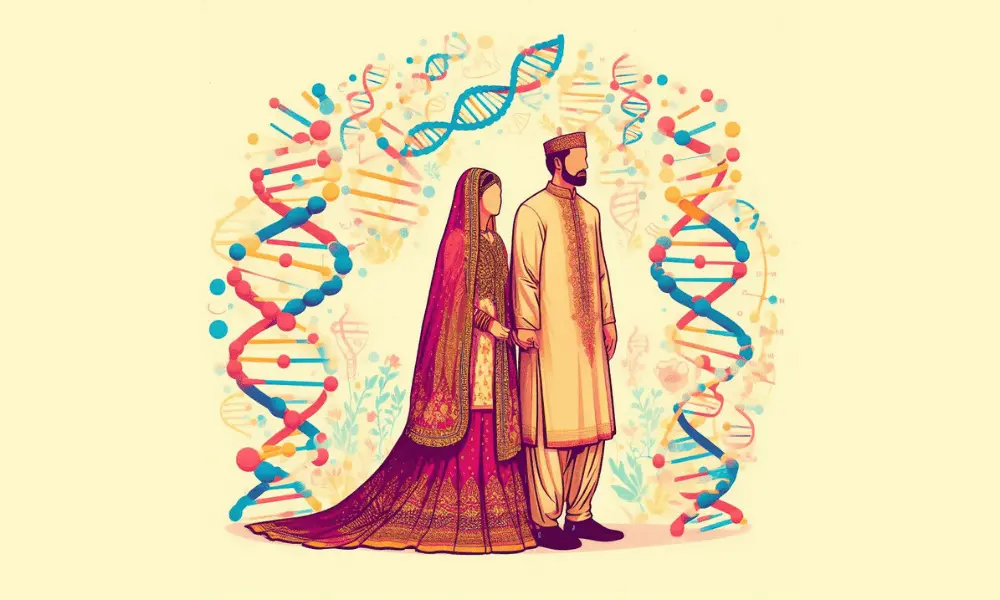Pakistan is a country with one of the highest rates of cousin marriages globally.
Experts said that these marriages are leading to an increase in genetic diseases due to gene mutations. A workshop was held at Dow University’s College of Biotechnology and it addressed the issue and aimed to raise awareness.
Vice Chancellor of Dow University Professor Muhammad Saeed Quraishy lead the workshop. He said that almost 65 per cent of marriages in Pakistan are cousin marriages
“Some ethnic groups are reaching up to 85 per cent,” he added.
He said that cousin marriages may have cultural, social, and biological benefits. Nontheless, they also increase the risk of major genetic disorders in babies.
Read More: Polio cases climb to 26 in Balochistan
International experts discuss genetic challenges
The workshop featured international expert Professor Stylianos E. Antonarakis from the University of Geneva. He shared research on genetic disorders.
He stated that there are 2,980 known recessive disease genes, but the number of unknown genes could range from 8,000 to 9,000.
He also discussed how genomic disorders are a side effect of evolution. He noted that newborns have 50 to 100 new mutations not present in their parents.
Professor Antonarakis stressed that marriages within families increase the chances of genetic disorders. He said that first cousins carry 55 rare homozygous variants, raising the risk for their children.
Genetic disorders in Pakistan
Assistant Professor Ambrin Fatima from Aga Khan University spoke about the high prevalence of genetic disorders in Pakistan majorly due to cousin marriages.
She said that Pakistan has one of the highest rates of thalassemia, with 6 per cent of people being the carriers.
“Pakistan has the highest number of microcephaly cases, where children have smaller heads than usual,” she added.
















